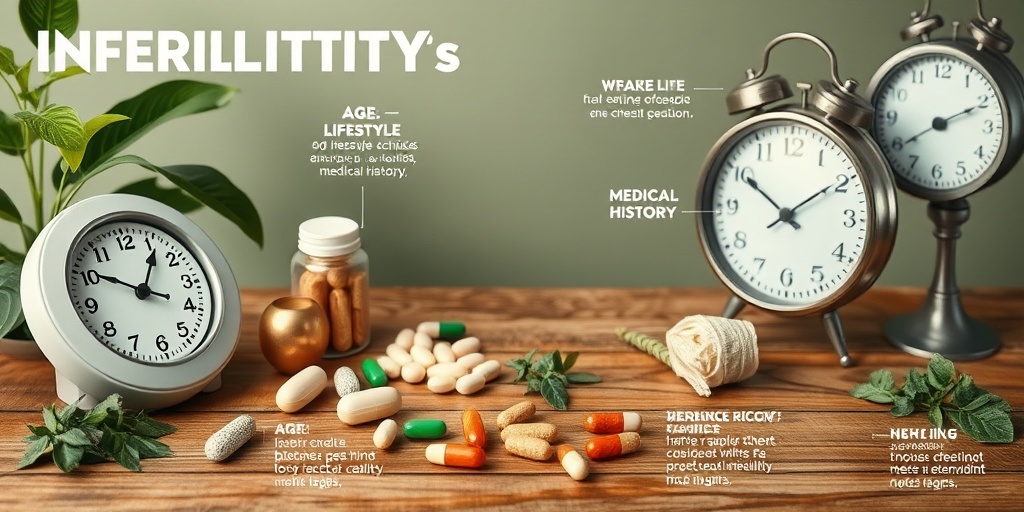What Is Infertility?
Infertility is a complex and often distressing condition that affects many couples trying to conceive. It is defined as the inability to achieve pregnancy after one year of regular, unprotected sexual intercourse. For women over the age of 35, this timeframe is reduced to six months. Infertility can be a challenging journey, filled with emotional ups and downs, and understanding its nuances is crucial for those affected.
Understanding Infertility
Infertility is not just a female issue; it can affect both men and women. In fact, approximately one-third of infertility cases are attributed to female factors, one-third to male factors, and the remaining cases are due to a combination of both or unexplained reasons. This highlights the importance of comprehensive testing and evaluation for both partners when facing difficulties in conceiving.
Common Causes of Infertility
There are various factors that can contribute to infertility, and they can vary significantly between men and women. Here are some common causes:
- Infertility Causes in Women: Conditions such as polycystic ovary syndrome (PCOS), endometriosis, and uterine abnormalities can hinder a woman’s ability to conceive. Hormonal imbalances and age-related factors also play a significant role.
- Infertility Causes in Men: Male infertility can stem from low sperm count, poor sperm motility, or abnormalities in sperm shape. Factors such as hormonal imbalances, genetic issues, and lifestyle choices (like smoking and excessive alcohol consumption) can also contribute.
Understanding these causes is the first step toward seeking appropriate treatment and support. If you suspect you or your partner may be experiencing infertility, consulting a healthcare professional is essential.
Infertility Symptoms
Recognizing the symptoms of infertility can be crucial for early intervention. While infertility itself may not present obvious symptoms, certain signs can indicate underlying issues that may affect fertility.
Symptoms in Women
Women may experience various symptoms that could signal infertility, including:
- Irregular Menstrual Cycles: If your periods are inconsistent or absent, it may indicate hormonal imbalances affecting ovulation.
- Painful Periods: Severe menstrual cramps or pelvic pain can be a sign of conditions like endometriosis.
- Changes in Sexual Function: Decreased libido or discomfort during intercourse can also be indicators of fertility issues.
Symptoms in Men
Men may also exhibit symptoms that could suggest infertility, such as:
- Changes in Sexual Function: Issues like erectile dysfunction or reduced libido can impact fertility.
- Testicular Issues: Swelling or lumps in the testicles may indicate underlying health problems.
- Changes in Hair Growth: Unusual hair loss or changes in body hair can signal hormonal imbalances.
When to Seek Help
If you or your partner are experiencing any of these symptoms, or if you have been trying to conceive for an extended period without success, it is important to seek medical advice. Early diagnosis and treatment can significantly improve the chances of conception.
For those navigating the complexities of infertility, resources like Yesil Health AI (yesilhealth.com) can provide valuable, evidence-based information to help you understand your options and make informed decisions about your health.
Infertility can be a challenging journey, but with the right support and information, couples can find hope and pathways to parenthood. Remember, you are not alone in this journey, and seeking help is a strong and positive step forward. 🌼

Common Causes of Infertility
Infertility is a complex issue that affects many couples trying to conceive. Understanding the common causes of infertility can help individuals and couples navigate their journey toward parenthood. Here are some of the primary factors that contribute to infertility:
1. Ovulation Disorders
One of the most prevalent causes of infertility in women is ovulation disorders. These conditions can disrupt the regular release of eggs from the ovaries. Common ovulation disorders include:
- Polycystic Ovary Syndrome (PCOS): A hormonal imbalance that can lead to irregular menstrual cycles and difficulty in ovulation.
- Hypothalamic Dysfunction: Issues with the hypothalamus can affect hormone production, leading to irregular or absent ovulation.
- Premature Ovarian Insufficiency: This condition occurs when the ovaries stop functioning before the age of 40, leading to reduced egg production.
2. Fallopian Tube Damage or Blockage
The fallopian tubes play a crucial role in conception, as they are the pathways through which eggs travel to meet sperm. Damage or blockage in these tubes can prevent fertilization. Common causes include:
- Pelvic Inflammatory Disease (PID): Often caused by sexually transmitted infections, PID can lead to scarring and blockages in the fallopian tubes.
- Endometriosis: This condition occurs when tissue similar to the lining of the uterus grows outside of it, potentially affecting the fallopian tubes.
3. Uterine Abnormalities
Structural issues within the uterus can also contribute to infertility. These abnormalities may include:
- Uterine Fibroids: Noncancerous growths in the uterus that can interfere with implantation or cause miscarriages.
- Septate Uterus: A condition where a fibrous or muscular wall divides the uterus, which can hinder embryo implantation.
4. Male Factor Infertility
Infertility is not solely a female issue; male factor infertility is a significant contributor as well. Common causes include:
- Low Sperm Count: A lower than normal number of sperm can reduce the chances of fertilization.
- Poor Sperm Motility: If sperm cannot swim effectively, they may struggle to reach the egg.
- Abnormal Sperm Morphology: Irregularly shaped sperm may have difficulty penetrating the egg.
5. Age
Age is a critical factor in fertility for both men and women. Women’s fertility typically begins to decline in their late 20s to early 30s, with a more significant drop after age 35. Men may also experience a decrease in fertility as they age, although this decline is generally more gradual.
Infertility Risk Factors
In addition to the common causes of infertility, several risk factors can increase the likelihood of experiencing fertility issues. Being aware of these factors can empower individuals and couples to take proactive steps in their reproductive health:
1. Lifestyle Choices
Certain lifestyle choices can significantly impact fertility. These include:
- Smoking: Tobacco use is linked to reduced fertility in both men and women.
- Excessive Alcohol Consumption: High alcohol intake can affect hormone levels and ovulation.
- Obesity or Underweight: Both extremes of body weight can disrupt hormonal balance and ovulation.
2. Medical Conditions
Various medical conditions can also pose risks to fertility, such as:
- Diabetes: Poorly controlled diabetes can affect reproductive health.
- Thyroid Disorders: An underactive or overactive thyroid can disrupt menstrual cycles and ovulation.
3. Environmental Factors
Exposure to certain environmental toxins can negatively impact fertility. These include:
- Pesticides: Some studies suggest a link between pesticide exposure and reduced fertility.
- Heavy Metals: Exposure to lead, mercury, and other heavy metals can affect reproductive health.
4. Stress
High levels of stress can interfere with hormonal balance and ovulation, making it more challenging to conceive. Finding effective stress management techniques, such as yoga or meditation, can be beneficial.
Understanding the common causes and risk factors of infertility is essential for anyone trying to conceive. By addressing these issues, individuals and couples can take informed steps toward improving their reproductive health and increasing their chances of conception. 🌱

Infertility Diagnosis
Infertility is a complex issue that affects many couples trying to conceive. Understanding the diagnosis process is crucial for identifying the underlying causes and determining the best course of action. In this section, we will explore the various methods used to diagnose infertility in both men and women.
Understanding Infertility
Infertility is typically defined as the inability to conceive after one year of unprotected intercourse. For women over 35, this timeframe is reduced to six months. It’s important to note that infertility can stem from various factors affecting either partner. The first step in addressing infertility is to undergo a thorough evaluation.
Initial Consultation
During the initial consultation, a healthcare provider will take a detailed medical history and perform a physical examination. This helps to identify any obvious issues that may be contributing to infertility. Key aspects of the consultation include:
- Medical History: Discussing past medical conditions, surgeries, and any medications currently being taken.
- Menstrual Cycle Assessment: For women, understanding the regularity and characteristics of menstrual cycles can provide insights into ovulation.
- Sexual History: Addressing any potential sexual health issues that could affect fertility.
Diagnostic Tests for Women
For women, several tests can help pinpoint the cause of infertility:
- Blood Tests: Hormonal levels, including estrogen and progesterone, are checked to assess ovarian function.
- Pelvic Ultrasound: This imaging test helps visualize the reproductive organs and identify any abnormalities such as cysts or fibroids.
- Hysterosalpingography (HSG): A special X-ray procedure that examines the uterus and fallopian tubes to check for blockages.
- Laparoscopy: A minimally invasive surgical procedure that allows doctors to view the pelvic organs directly.
Diagnostic Tests for Men
Men also undergo specific tests to evaluate fertility:
- Semen Analysis: This test assesses the quantity, quality, and motility of sperm.
- Hormonal Testing: Blood tests can check testosterone levels and other hormones that influence sperm production.
- Genetic Testing: In some cases, genetic factors may contribute to infertility, and testing can help identify these issues.
Infertility Treatment Options
Once a diagnosis has been established, various treatment options are available to help couples achieve pregnancy. The choice of treatment often depends on the underlying cause of infertility, the age of the partners, and their personal preferences.
Medications
For some couples, medications can effectively address hormonal imbalances or stimulate ovulation. Common medications include:
- Clomiphene Citrate: Often prescribed for women with irregular ovulation.
- Gonadotropins: Hormonal injections that stimulate the ovaries to produce multiple eggs.
- Metformin: Used for women with polycystic ovary syndrome (PCOS) to improve insulin sensitivity and promote ovulation.
Assisted Reproductive Technologies (ART)
For couples facing more complex infertility issues, assisted reproductive technologies may be recommended:
- Intrauterine Insemination (IUI): Sperm is directly placed into the uterus during ovulation to increase the chances of fertilization.
- In Vitro Fertilization (IVF): Eggs are retrieved from the ovaries and fertilized with sperm in a lab, then implanted back into the uterus.
- Intracytoplasmic Sperm Injection (ICSI): A single sperm is injected directly into an egg, often used in cases of male infertility.
Lifestyle Changes
In addition to medical treatments, certain lifestyle changes can enhance fertility:
- Healthy Diet: A balanced diet rich in fruits, vegetables, whole grains, and lean proteins can improve overall health.
- Regular Exercise: Maintaining a healthy weight through regular physical activity can positively impact fertility.
- Avoiding Tobacco and Alcohol: Reducing or eliminating these substances can improve reproductive health.
Understanding the diagnosis and treatment options for infertility is essential for couples on their journey to parenthood. With the right support and medical intervention, many couples can overcome infertility challenges and achieve their dream of having a family. 🌟

Emotional Impact of Infertility
Infertility can be a deeply challenging experience, affecting not only physical health but also emotional well-being. The journey through infertility often brings a whirlwind of feelings, from hope and excitement to despair and frustration. Understanding the emotional impact of infertility is crucial for both individuals and couples navigating this difficult path.
Understanding the Emotional Rollercoaster
Many people facing infertility report experiencing a range of emotions, including:
- Sadness: The inability to conceive can lead to profound feelings of loss and grief.
- Anger: Frustration may arise from the perceived unfairness of the situation, leading to resentment towards others who conceive easily.
- Anxiety: The uncertainty of the future can create significant stress, impacting daily life and relationships.
- Isolation: Many individuals feel alone in their struggles, which can lead to withdrawal from social situations.
These emotions are completely normal, yet they can be overwhelming. It’s important to acknowledge these feelings and seek support when needed. 💔
Impact on Relationships
Infertility doesn’t just affect the individual; it can also strain relationships. Couples may find themselves arguing more frequently or feeling disconnected from one another. Communication becomes essential during this time. Here are some tips to help maintain a healthy relationship:
- Open Dialogue: Share your feelings and fears with your partner. Honest conversations can foster understanding and support.
- Seek Counseling: Professional help can provide a safe space to explore emotions and improve communication.
- Support Each Other: Be there for one another, whether it’s through listening or simply spending quality time together.
Finding Support
Connecting with others who understand your experience can be incredibly beneficial. Consider joining support groups, either in-person or online, where you can share your journey and hear from others facing similar challenges. 🌈
Infertility Prevention Tips
While not all cases of infertility can be prevented, there are several steps individuals can take to reduce their risk. Understanding the causes of infertility can empower you to make informed choices about your reproductive health.
Maintain a Healthy Lifestyle
Adopting a healthy lifestyle can significantly impact fertility. Here are some key areas to focus on:
- Nutrition: A balanced diet rich in fruits, vegetables, whole grains, and lean proteins can support reproductive health. Consider incorporating foods high in antioxidants, such as berries and nuts, which may improve fertility.
- Exercise: Regular physical activity can help maintain a healthy weight, which is crucial for fertility. However, excessive exercise can have the opposite effect, so aim for a balanced routine.
- Avoid Smoking and Excessive Alcohol: Both smoking and heavy drinking can negatively affect fertility in both men and women. Quitting smoking and moderating alcohol intake can improve your chances of conception.
Manage Stress
High levels of stress can impact hormonal balance and fertility. Here are some effective stress management techniques:
- Meditation and Mindfulness: Practicing mindfulness can help reduce anxiety and improve emotional well-being.
- Yoga: This gentle form of exercise promotes relaxation and can enhance overall health.
- Seek Support: Don’t hesitate to reach out to friends, family, or professionals for support during stressful times.
Regular Health Check-ups
Routine medical check-ups can help identify potential health issues early on. Discuss any concerns about fertility with your healthcare provider, especially if you have a history of reproductive health issues or chronic conditions. Regular screenings can help catch problems before they affect your ability to conceive. 🩺
By taking proactive steps towards a healthier lifestyle and seeking support, individuals can better navigate the emotional and physical challenges associated with infertility. Remember, you are not alone on this journey. 🌟

Frequently Asked Questions about Infertility
What is infertility?
Infertility is defined as the inability to conceive after one year of regular, unprotected sexual intercourse. It can affect both men and women and may require medical evaluation to determine underlying causes.
What are the common symptoms of infertility?
Symptoms of infertility can vary based on the individual and the underlying causes. Common signs may include:
- Irregular or absent menstrual cycles in women
- Pain during intercourse
- Changes in sexual desire
- Low sperm count or quality in men
What are the main causes of infertility?
There are various factors that can contribute to infertility, including:
- Hormonal imbalances: Affecting ovulation in women or sperm production in men.
- Structural issues: Such as blocked fallopian tubes in women or varicocele in men.
- Age: Fertility declines with age, particularly in women.
- Lifestyle factors: Including smoking, excessive alcohol consumption, and obesity.
How is infertility diagnosed?
Diagnosis of infertility typically involves a series of tests, which may include:
- Blood tests to check hormone levels
- Ultrasounds to examine reproductive organs
- Semen analysis for men
- Hysterosalpingography (HSG) to check for blockages in the fallopian tubes
What treatments are available for infertility?
Treatment options for infertility depend on the underlying cause and may include:
- Medications: To stimulate ovulation or improve sperm production.
- Assisted reproductive technologies: Such as in vitro fertilization (IVF).
- Surgery: To correct structural issues affecting fertility.
Can lifestyle changes improve fertility?
Yes! Making certain lifestyle changes can enhance fertility. Consider:
- Maintaining a healthy weight
- Eating a balanced diet rich in fruits and vegetables
- Exercising regularly
- Avoiding tobacco and limiting alcohol intake
When should I see a doctor about infertility?
If you have been trying to conceive for over a year without success (or six months if you are over 35), it is advisable to consult a healthcare professional for evaluation and guidance on infertility.
Is infertility common?
Yes, infertility is a common issue affecting many couples. It is estimated that about 10-15% of couples experience difficulties in conceiving.
Can stress affect fertility?
While stress alone is not a direct cause of infertility, it can impact hormonal balance and overall health, potentially affecting fertility. Managing stress through relaxation techniques, exercise, and counseling can be beneficial.
Are there support groups for infertility?
Yes, many organizations and online communities offer support for individuals and couples facing infertility. Connecting with others who understand your journey can provide emotional support and valuable resources.




